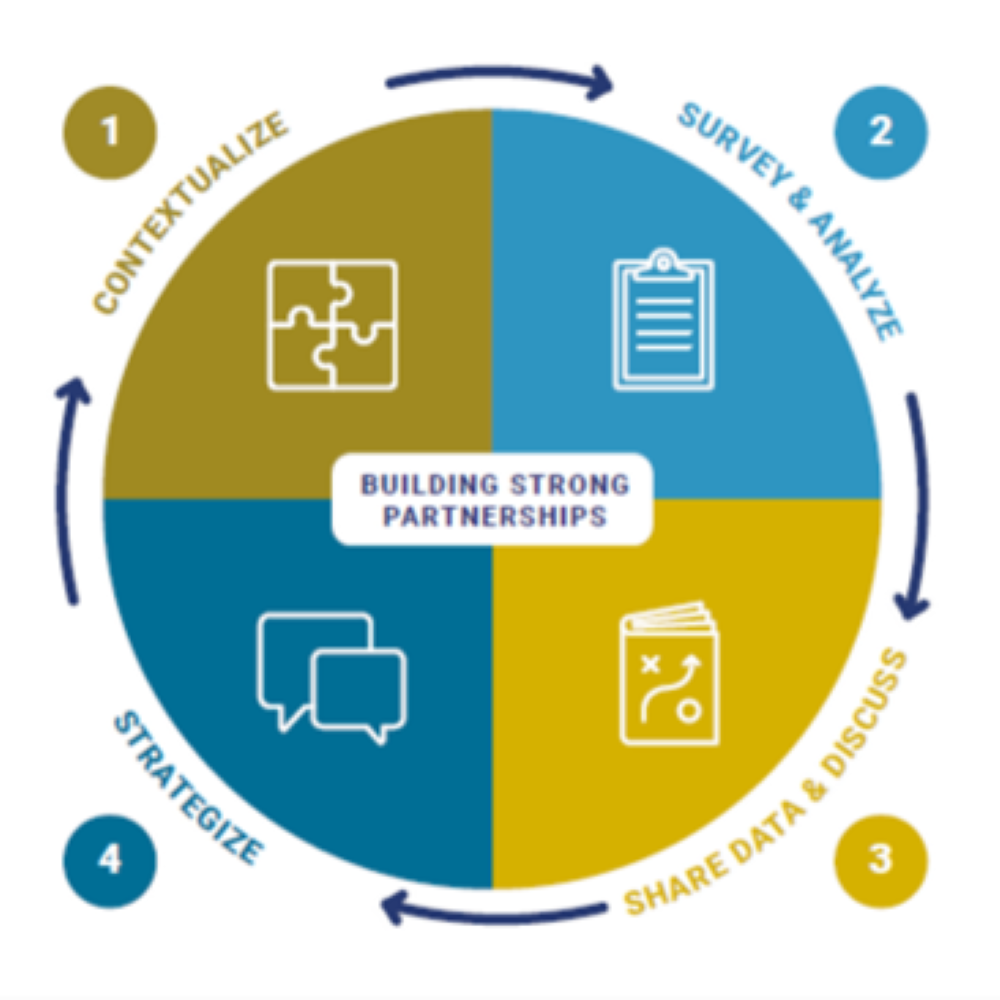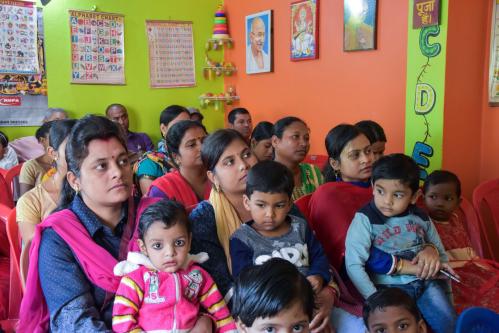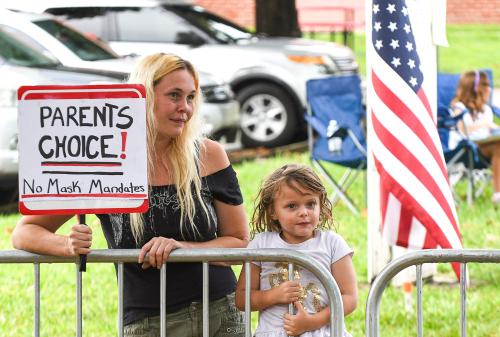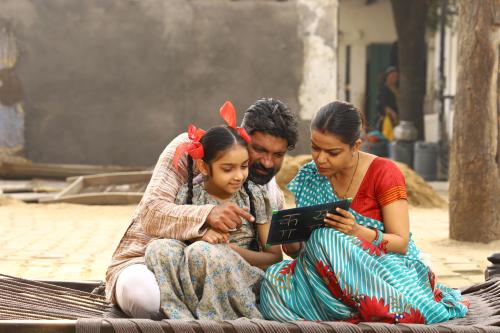An earlier version of the Conversation Starter Tools was published in 2021 in “Collaborating to Transform and Improve Education Systems: A Playbook for Family-School Engagement.” The initial tool prototype has since evolved and expanded through research and testing in 16 countries into this publication in 2024.
For several years, the Center for Universal Education (CUE) has been helping to make the case that family, school, and community engagement is essential to education systems transformation. Families and communities are key drivers of demand and buy-in for transformation and important allies to schools in supporting students and schools to thrive. Yet, in many schools around the world, family, school, and community engagement remains easier said than done. Schools often lack sufficient data, dialogue, and directions to implement inclusive, equity-focused, and responsive, family, school, and community engagement practices and policies. To help bridge this gap from theory to action, CUE has developed the “Conversation Starter Tools: A Participatory Research Guide to Building Stronger Family, School, and Community Partnerships.”
What are the Conversation Starter Tools?
The Conversation Starter Tools (CSTs) are a set of seven tools, including surveys, focus group discussion guides, and other protocols that schools, school districts, and/or community organizations can use to conduct participatory and community-driven research within their schools. The CSTs provide schools and community teams with a methodology for examining the landscape of family, school, and community engagement in their context and a process by which they can develop greater relational trust and craft a shared vision of how to build stronger partnerships. Through surveys and intentional conversations grounded in data, the CST process guides school and community teams in identifying educators’, parents’, and students’ beliefs on education, relational trust, and types of and barriers to family involvement in their own school communities. This participatory research is not intended to judge or assess schools, but rather to help schools map different beliefs and perspectives in order to develop relational trust with families and students and to create contextually relevant strategies to build stronger partnerships. From June 2022 through December 2023, CUE together with a diverse group of school and community teams around the world developed and piloted the CST approach in the following countries: Australia, Bangladesh, Brazil, Colombia, Ghana, India (Maharashtra and Tripura), Hungary, Kazakhstan, Kenya, Netherlands, Sierra Leone, South Africa, Tanzania (Zanzibar), Uganda, the United Kingdom (England), and the United States (California).1
How are the Conversation Starter Tools used?
As shown in the diagram below, the CST process guides school and community teams through four key steps:
- Contextualize. Think through why teams are conducting this community-driven research (objectives), the design they will use (research design), who will participate (sample and demographics), and planning considerations (logistics).
- Survey & analyze. Administer surveys to families, educators, and students (over 14 years of age) either in-person or remotely. Analyze and visualize data in easy-to-understand formats for schools to use.
- Share data & discuss. Organize intentional conversations among families, educators, and students to share, reflect on, and discuss the findings. Use conversations to build relational trust.
- Strategize. Based on conversation and survey data, identify contextually-relevant strategies that build stronger family, school, and community partnerships.
A participatory, community-driven approach to building evidence and practice
The CSTs use mixed methods and a participatory approach to explore beliefs on, experiences with, and trust in schools alongside family, school, and community engagement practices and barriers. The approach is community-driven, guiding school teams through the process of collecting data with families, educators, and students, using data as a springboard for dialogues, and ultimately to generate strategies and new directions to support greater family, school, and community engagement. In centering schools and communities as agents of research, educators and community members lead the design, implementation, and analysis in their communities and determine how to use the data to build stronger family, school, and community engagement research. Explore the Conversation Starter Tools here and let us know how you use them in your work at [email protected]
-
Footnotes
- Findings from this collaborative research study will be detailed in an upcoming report, “5 Global Lessons on How Family, School, and Community Engagement can Transform Education.”
The Brookings Institution is committed to quality, independence, and impact.
We are supported by a diverse array of funders. In line with our values and policies, each Brookings publication represents the sole views of its author(s).










